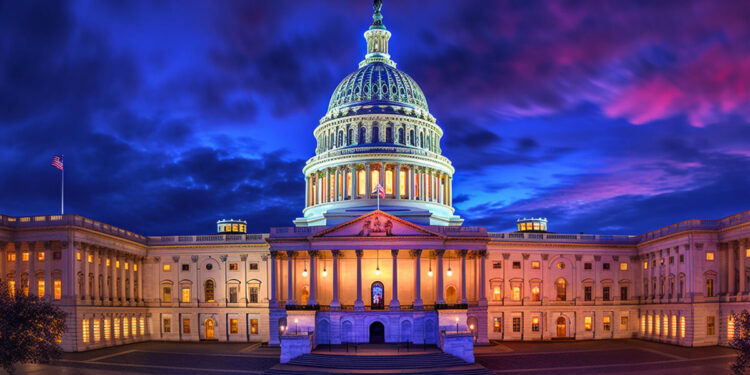A recent House hearing on decentralized finance (DeFi) showcased significant rifts among lawmakers. The discussions focused on the necessity for regulatory measures to protect consumers from scams, with Democrats advocating for stricter rules, whereas Republicans supported a more lenient approach to spur innovation.
The meeting aimed to explore both the advantages and risks associated with DeFi. Representative Maxine Waters (D-CA) expressed concerns regarding former President Donald Trump and his family’s involvement with a new DeFi project, World Liberty Financial.
Waters, the leading Democrat on the House Financial Services Committee, warned that the project exemplifies the dangers present in the largely untouched DeFi landscape. She referenced a notable incident where social media accounts linked to Trump family members were compromised, leading to the promotion of a fraudulent token that resulted in the loss of $1.8 million for unsuspecting investors.
“Given the prominence of those behind this project, bad actors found an opportunity to exploit potential users. It’s our responsibility as lawmakers to ensure consumers are protected from such scams in the DeFi space.”
Divided Perspectives on Regulation
The hearing revealed the contrasting viewpoints of lawmakers regarding the regulation of DeFi platforms. Waters and her Democratic colleagues insisted on the need for stricter oversight to combat fraud and scams, particularly in light of the incident involving World Liberty Financial.
Democrats highlighted the substantial risks of fraud and market manipulation in DeFi and underscored the necessity of establishing clear regulations to mitigate these threats. They called for enhanced anti-fraud initiatives and comprehensive regulatory oversight to protect consumers as the sector evolves.
Conversely, Republicans, led by Subcommittee Chair French Hill (R-AR), opposed heavy-handed regulation, arguing that it could hinder industry growth. They emphasized that DeFi offers a promising transformation of finance, fostering financial inclusion and enabling transactions without reliance on traditional intermediaries.
“We must tread carefully to allow innovation to flourish while addressing legitimate concerns. DeFi holds great promise, but we can’t be so restrictive that we kill its potential.”
Hill further warned that imposing stringent regulations prematurely could lead to a migration of DeFi projects to jurisdictions with more favorable environments for innovation.
Balancing Privacy and Transparency
Testimonies from industry experts and regulators revealed growing apprehension regarding fraud, market manipulation, and the general absence of consumer safeguards in the DeFi space.
Peter Van Valkenburgh, research director at Coin Center, testified that while blockchain technology presents transparency benefits, the industry is still susceptible to malicious actors, especially in the lack of coherent guidelines.
He opposed the notion of implementing overly intrusive regulations, cautioning that such actions could lead to a fully monitored financial ecosystem. Van Valkenburgh advocated for a balanced approach to regulate criminal activities without infringing on users’ rights to financial privacy.
He emphasized that excessively harsh regulations could compromise the fundamental advantages of blockchain—its transparency and ability for public verification of transactions while maintaining user privacy.
Additional witnesses called for clearer directives from regulators to help companies navigate compliance without stifling innovation. There were concerns voiced that without cohesive regulation, the U.S. risks lagging behind other nations in adopting blockchain technologies.
Mentioned in this article
This rewritten version organizes the information clearly for better readability and includes HTML headings and subheadings for proper optimization. Each key point is clearly delineated to enhance understanding while maintaining the core content and context.




